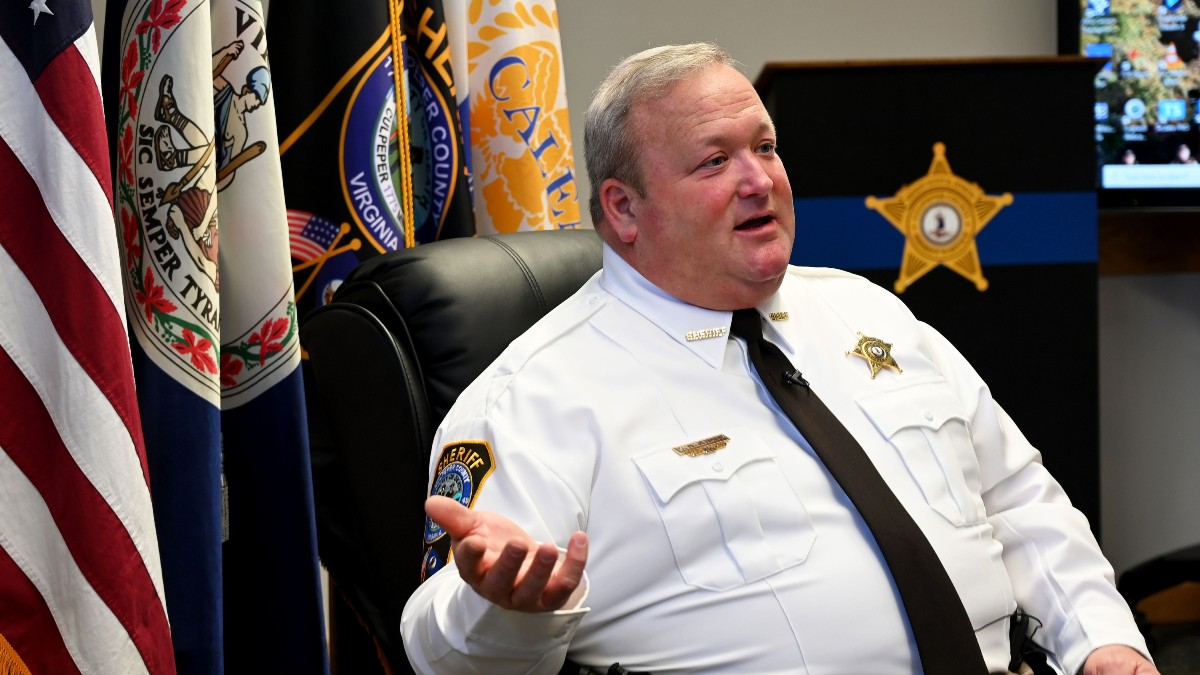It's information the military didn't want you, or even Congress, to have. But for the first time, the News4 I-Team reveals what is really happening to those accused of raping or sexually assaulting their fellow service members — prompting one powerful member of Congress to now say the data shows the National Guard isn't doing enough to protect those serving in silence.
Kimberly Davis said it started like any other night when she and about 20 others in her National Guard unit went out to the bar. "It wasn't unusual for all of us to be out drinking," she said. "It wasn't unusual for us to challenge each other to keep doing shots."
But she became so intoxicated, Davis said, her supervisor drove her home. To his home.
She remembers his face coming too close to hers as they approached his front door. "I remember kind of laughing and saying, 'Get off of me.' Like, 'What are you doing?' In my head, I was thinking, 'Is he crazy? Get off me dude, you know this isn't happening. Hate to break it to you.' And then, I blacked out," Davis said.
When she woke up, Davis said she realized she'd been raped by a man who outranked her.
"I didn't have any clothes on. I did hurt a little bit and quickly realized something bad had happened."
Davis said she was so afraid of retaliation that she endured eight years of harassment by her attacker before finally making an official report.
The New York National Guard told the News4 I-Team it "followed the process to investigate her claim but eight years makes it very difficult."
A spokesman said, "We can't say it didn't happen, but we can't substantiate the claim." He added, "We applaud her courage to come forward."
Davis said her attacker retired a few months after her investigation, which the National Guard confirmed, while the retaliation she so feared became a reality.
"Not only was I not promoted for the first time in 20 years, I started getting negative evaluations," she said. "I started getting official letters of reprimand."
It was enough, she said, for her to consider suicide. "It changes who you are," she said as she started to cry for the first time in the interview. "I feel like they robbed me of that fun person. I'm not fun anymore, I don't laugh a lot anymore."
"If we want people to come forward early, while the evidence is available and prosecution will be possible, we need to make sure their careers will be safe," Meghan Rhoad of Human Rights Watch said.
Rhoad was the lead author of a recent study that found, based on interviews with military survivors of sexual assault, that they're 12 times more likely to face retaliation than see their attacker convicted of the crime.
But she told us no one has been able to get any numbers from the military on retaliation or punishments. "If you're going to address the problem, you need to know the scope of what it is and what the dynamics are. That is essential."
In a statement, the National Guard Bureau told the News4 I-Team "we are aggressively working to understand the scope of the problem to determine a way forward." But when we asked the Guard Bureau for statistics on how it investigates sex assaults, including retaliation and punishment outcomes, the Guard Bureau admitted it did not have that data on a nationwide level.
We were told, "reaching out to each State National Guard would likely be the best way to go."
But in an internal email, the Guard Bureau also told all of its units to "hold off" and not give us this information, leaving states like West Virginia to write us, "we are not allowed to release these stats."
And, in another internal email we obtained, the National Guard sent out a message asking all Guard units to start collecting this data because html">"interest in the National Guard has increased exponentially."
That's when the News4 I-Team sent out a survey to every Guard unit in the nation, including all fifty states as well as the District of Columbia, Puerto Rico, Guam and the Virgin Islands.
We asked them to answer 10 questions about how they investigate sexual assault, including what kind of punishments they've handed out in the past five years.
Forty out of 54 units responded to our questions, allowing us to gather the very first numbers ever released to the public about what actually happens to those accused of sexual assault in the military.
Investigations
Investigations by the News4 I-Team
"We don't even have the basic information now," said New York Senator Kirsten Gillibrand. "Your survey is the first slice of information we actually have."
[[310766251, L]]
She told us even Congress hasn't been able to get the information we gathered and was stunned by what we uncovered.
Only six of the responding states held a court martial for sexual assault within the last five years, resulting in just three incarcerations and one dishonorable discharge.
[[310780861, L]] Most states used less serious types of discharge, like "General" or "Less than Honorable" discharges, or administrative punishments like letters of reprimand. Some allowed attackers to resign or retire.
"It's insufficient for a serious felony," Gillibrand said. "These are felonies. These are criminal charges in the civilian system if you're convicted of rape. You go to jail. And you go to jail for a long time."
The National Guard Bureau declined our request for an on-camera interview, but tells us, "It is a tenet of military command that commanders have unimpeded discretion, without undue influence, to discipline those under their command" and "each case stands on its own merits."
Unlike the rest of the Services, the National Guard said it is not required by Congress to collect data on case outcomes. It told us in its statement the National Guard is "making progress" convincing adjutants general to provide this data but "welcomed" a "congressional mandate" to force them to do it because "we feel it is important."
"I think it's great you took the time to do the survey," Sen. Gililbrand said, "because it really shines a light on a huge issue that we don't have the level of transparency and accountability that we need on these serious criminal cases in the National Guard."



